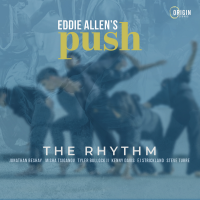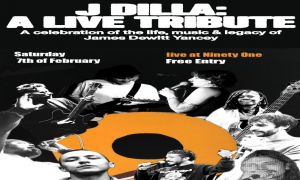You've got a lot of money but you cannot get your bills paid
The sacrifice is worth it just to hang around the arcade
You found yourself a prophet but you left him on the boardwalk
Another chocolate Easter bunny, hollowed out by your talk
 |
Aimee Mann travels great distances in just a few words. From her first hit, with 'Til Tuesday in 1985 (the ubiquitous “Voices Carry") through an Academy Award nomination in 1999 for “Save Me" in Paul Thomas Anderson's harrowing masterpiece Magnolia through the unfussy perfection of her new album, @#%&! Smilers (released June 3 on Superego Records), Mann is a songwriter's songwriter. Creating verisimilitude in the space of three or so minutes isn't easy, and Mann is one of a handful of songwriters that one can confidently place next to Lennon & McCartney, Ray Davies, Bread, Pete Ham and other hallowed crafters of miniature worlds within the largely ephemeral pop realm.
“It's three-minutes but you make it work. You can still tell a pretty complicated story, and I really love that," observes Mann. “Sometimes it reminds me of graphic art. You have to choose a couple of simple, arresting images and what words you have need to contain the essence of what you want to say. It's not a novel; it's only three-minutes that people are spending with you."
The best pop rock shows a high level of craftsmanship. The care that goes in, from the bottom up matters, and Mann long ago proved her dedication to sculpting substantive ditties. But, so seamless and wonderfully connected are all the parts of her music that one can miss just how crazy bloody she is. Carried off by her low, resonant, always intriguing voice and breezy melodies, you'll probably miss all the labor and care that went into each piece. Smilers is a particularly embracing album that actively reaches out to the listener and draws them into the captured moments inside the songs.
 |
“That's anyone's goal at any point but it's easier said than done. You write the songs you write and record them in a way that makes you happy and hope somehow it's translating and other people think it's fun," says Mann. “It doesn't happen on its own. I think people glamorize the idea that things happen without really trying, but it doesn't really work that way. Your goal is to make it look easy, to make it look like it's not labor. But, like anything, there's a lot of backstory to get to where you make it look easy. I was never one for trusting that things will get thrown together in the studio. I didn't trust that kind of 'jam philosophy.' I never liked that approach because it tends to pressure you into leaning on cliches because you have to cough something up."
A decent portion of Mann's catalog is relationship oriented but without the usual tinge of romanticism that infects most tales of the heart. She leaves the messy complications - especially the ones we generate ourselves - intact. There's a level of reality to her stories that helps them resonate with the real world and those of us banged around by it.
“I don't usually think of them as love songs. My songs are usually more about dynamics between people. I want to pierce that dynamic, to say, 'Here's what happened. Here are the players involved.' If people read autobiography into them they don't usually tell me about it [laughs]. That's usually something I see in a review and I don't really get a chance to refute it," says Mann. “People project their own stuff onto everything. That's kind of how people find out about themselves. It's understandable but it's interesting to read that this song is about this and that song is about that. Sometimes I'll even adopt it. I'll read something in a review and think, 'Well, that makes it so much more interesting,' and I'll incorporate that into the story of it."
“What I've been getting a lot in the U.K. is that I'm a writer chronicling drifters and the broken American dream. It makes me come across as someone who talks exclusively about the American Experience of drifters and losers and outsiders. That's not necessarily untrue but I would never have thought of [my work] as specifically American," continues Mann. “Maybe just having a couple details or place names like 'Phoenix' or 'Columbus Avenue.' I don't think it takes much in a song to make a certain impression. That's why songwriting is so great because you don't need to have long pages of description. You just have a couple of references to put a picture in somebody's mind."
 |
Got out of Phoenix, just in time
A box of Kleenex, for the ride
The tumbleweeds said their goodbyes
To javelinas and DUIs
Mann has a knack for incorporating well worn phrases like “wash, rinse and spin" and other invisible but omnipresent parts of the English language - truisms and cliches held up to a new light - into her lyrics. By shifting the context, she subtlety mutates our meaning of these commonplace expressions.
“I love little figures of speech and using them in a song, not even in an unusual way. The fact that they pop up in songs is unusual enough," says Mann. “I should write that kind of stuff down and I never do. I hear an expression and say, 'Ooh, I need to use that later,' and, of course, I forget it. Then you just have to depend on your brain coming up with it when you're writing."
She's so skilled at putting nuance to everyday things that she even pulled off a small Christmas miracle a couple years ago. Christmas records are usually the last refuge of a scoundrel but Mann managed to create the rare good seasonal offering with 2006's One More Drifter In The Snow.
“My producer Paul Bryan and I discussed the idea and initially rejected it out of hand. Then, we continued to talk about it because it's an interesting topic. 'Well, all Christmas records suck so we don't want to make something that sucked.' But then we got into Christmas albums we do like. From 'No, we'd never do that' the conversation became about how we could do something really good. There's a lot of great Christmas songs that I like just as songs," says Mann. “The title is from a song I wrote with Paul, and I just loved it. It's both funny and sad at the same time, which is my favorite kind of thing."
Continue reading for more on Aimee Mann...
 |
|
We got back in the car and listened to a Dylan tape
We drove around the fields until it started getting late
And I went back to my hotel room on the highway
And he just got back in his car and drove away
 |
Though a tour veteran of more than two decades, Mann retains an endearing shyness and authenticity in concert. She rambles and chats naturally, if in short bursts, en route back to her clear priority, playing the songs well for those who've gathered. Her bands are universally pro, and like her albums one is almost guaranteed a quality experience.
“I don't really ever know what people want to hear. Sometimes I take requests but it's better when it's on a piece of paper. If you ask everybody just screams out at once. Sometimes we'll do request nights," says Mann. “It's sort of hilarious that it's me doing a request night because I have an almost legendarily bad memory. It's very rare that somebody requests a song and I remember unless it's a song we've been playing or just a pure accident I recall it [laughs]."
“Paul always plays bass with me. He and I and Jamie Edwards [keys] have done a lot of acoustic shows, and that's really fun because there's a lot more improvising you can get away with when you have just three people," Mann continues. “I find that playing with Paul has really brought a new dimension to live playing with me. He has so much integrity, and he's dedicated to making the live experience real and enjoyable and making the best set possible. I think it's easier to relax feeling there's somebody who's a watchdog that'll make sure it sounds great. It's very hard for me to have any objectivity. I'm playing and singing and it's hard to hear it as a whole."
Lucky audiences have gotten to check out the special Acoustic Vaudeville and Christmas shows, which offer up a variety show style evening with comedy intermingled with the music. On the first Vaudeville tour, Patton Oswalt both performed an opening set and did improvised between song banter for Mann and her equally brilliant popster husband Michael Penn.
“I really like having comedy mixed with music. I like being onstage with comedians, and working with Paul F. Tompkins at the Christmas shows was especially rewarding," says Mann, who made a guest appearance during a Tompkins' segment on the “Beer vs. Weed" episode on Comedy Central's Root of All Evil (see Mann's appearance here).
She has worked with Artists Against Piracy in an effort to raise awareness of the consequences of electronic music theft.
 |
“People have the attitude about it they have. The only thing I want is for people to have a realistic attitude about it. If you don't support an artist they will not be able to continue making records. It becomes like a vanity hobby if you're not making a living, and that hobby is too expensive for most people," observes Mann. “What you'll get is the fuckin' showoffs with trust funds. Trust me, those people aren't going to make music you want to hear. They're in it to get attention and to be rock stars - some douche bag strutting around because he wants attention and he has some undeserved, unlimited funds. That's just the end result of what's happening."
“It's harder for me because I come from the perspective of looking over a field of ancillary people who are starting to earn less and less money. I don't make money on the road; people at my level don't make money on the road unless you're a solo performer. You have to pay for band members and a bus and crew. It's always a bigger operation than it works. And believe me, we're not staying in big hotels or anything! It's just getting from one place to another," continues Mann. “The only way you make money is selling records, and if you don't make money selling records you start to be unable to take musicians out on the road, and those are the guys who really live hand-to-mouth - the side guys, engineers and even studios themselves, which are starting to close because people can't afford to make records. So, it's a whole industry of professional people who deserve to make a living wage that then can't. Take the stuff that's offered for free, and the stuff that's not don't take it. How about that? It's just a matter of courtesy. There's plenty of people that want their picture taken. Take their picture and leave the people that don't alone. I think it's almost a question of manners."
There's something intrinsically classy about Aimee Mann. Class isn't a description one feels inspired to use much these days but there's not a moments hesitation when it comes to this gifted chronicler of the human condition. She's able to take discontent and armchair philosophizing and wrangle them into compact dissertations on what makes us tick.
I thought my life would be different somehow
I thought my life would be better by now
But it's not, and I don't know where to turn
Easter comes and goes
Maybe Jesus knows
So you roll on with the best you can
Getting loaded, watching CNN
Aimee Mann “Freeway"



























